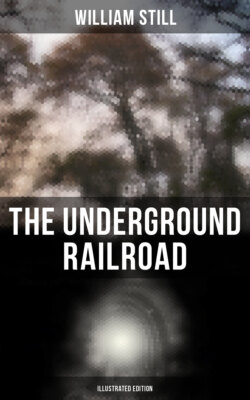Читать книгу The Underground Railroad (Illustrated Edition) - William Still - Страница 30
На сайте Литреса книга снята с продажи.
LETTER FROM MRS. L.E. WHITE
ОглавлениеTable of Contents
RICHMOND, 16th, 1854.
DEAR HENRY: — Your mother and myself received your letter; she is much distressed at your conduct; she is remaining just as you left her, she says, and she will never be reconciled to your conduct.
I think Henry, you have acted most dishonorably; had you have made a confidant of me I would have been better off; and you as you are. I am badly situated, living with Mrs. Palmer, and having to put up with everything — your mother is also dissatisfied — I am miserably poor, do not get a cent of your hire or James', besides losing you both, but if you can reconcile so do. By renting a cheap house, I might have lived, now it seems starvation is before me. Martha and the Doctor are living in Portsmouth, it is not in her power to do much for me. I know you will repent it. I heard six weeks before you went, that you were trying to persuade him off — but we all liked you, and I was unwilling to believe it — however, I leave it in God's hands He will know what to do. Your mother says that I must tell you servant Jones is dead and old Mrs. Galt. Kit is well, but we are very uneasy, losing your and James' hire, I fear poor little fellow, that he will be obliged to go, as I am compelled to live, and it will be your fault. I am quite unwell, but of course, you don't care.
Yours,
L.E. WHITE.
If you choose to come back you could. I would do a very good part by you, Toler and Cooke has none.
This touching epistle was given by the disobedient William to a member of the Vigilant Committee, when on a visit to Canada, in 1855, and it was thought to be of too much value to be lost. It was put away with other valuable U.G.R.R. documents for future reference. Touching the "rascality" of William and James and the unfortunate predicament in which it placed the kind-hearted widow, Mrs. Louisa White, the following editorial clipped from the wide-awake Richmond Despatch, was also highly appreciated, and preserved as conclusive testimony to the successful working of the U.G.R.R. in the Old Dominion. It reads thus —
"RASCALITY SOMEWHERE. — We called attention yesterday to the advertisement of two negroes belonging to Mrs. Louisa White, by Toler & Cook, and in the call we expressed the opinion that they were still lurking about the city, preparatory to going off. Mr. Toler, we find, is of a different opinion. He believes that they have already cleared themselves — have escaped to a Free State, and we think it extremely probable that he is in the right. They were both of them uncommonly intelligent negroes. One of them, the one hired to Mr. White, was a tip-top baker. He had been all about the country, and had been in the habit of supplying the U.S. Pennsylvania with bread; Mr. W. having the contract. In his visits for this purpose, of course, he formed acquaintances with all sorts of sea-faring characters; and there is every reason to believe that he has been assisted to get off in that way, along with the other boy, hired to the Messrs. Williams. That the two acted in concert, can admit of no doubt. The question is now to find out how they got off. They must undoubtedly have had white men in the secret. Have we then a nest of Abolition scoundrels among us? There ought to be a law to put a police officer on board every vessel as soon as she lands at the wharf. There is one, we believe for inspecting vessels before they leave. If there is not there ought to be one.
"These negroes belong to a widow lady and constitute all the property she has on earth. They have both been raised with the greatest indulgence. Had it been otherwise, they would never have had an opportunity to escape, as they have done. Their flight has left her penniless. Either of them would readily have sold for $1200; and Mr. Toler advised their owner to sell them at the commencement of the year, probably anticipating the very thing that has happened. She refused to do so, because she felt too much attachment to them. They have made a fine return, truly."
No comment is necessary on the above editorial except simply to express the hope that the editor and his friends who seemed to be utterly befogged as to how these "uncommonly intelligent negroes" made their escape, will find the problem satisfactorily solved in this book.
However, in order to do even-handed justice to all concerned, it seems but proper that William and James should be heard from, and hence a letter from each is here appended for what they are worth. True they were intended only for private use, but since the "True light" (Freedom) has come, all things may be made manifest.
